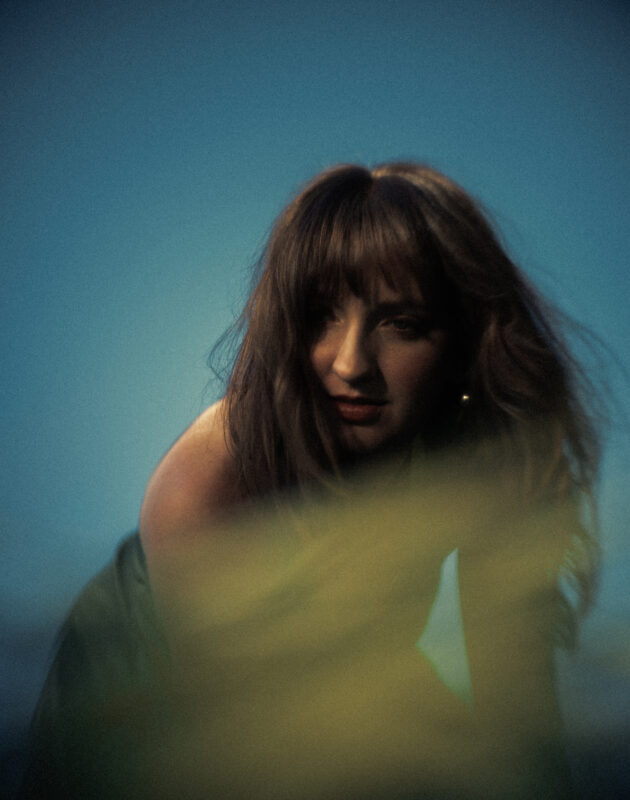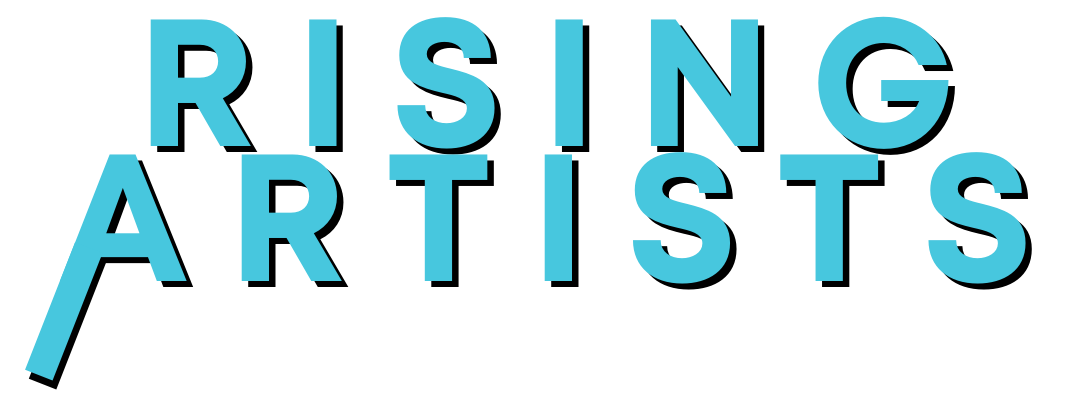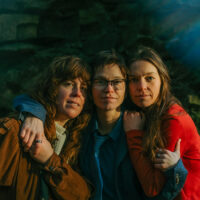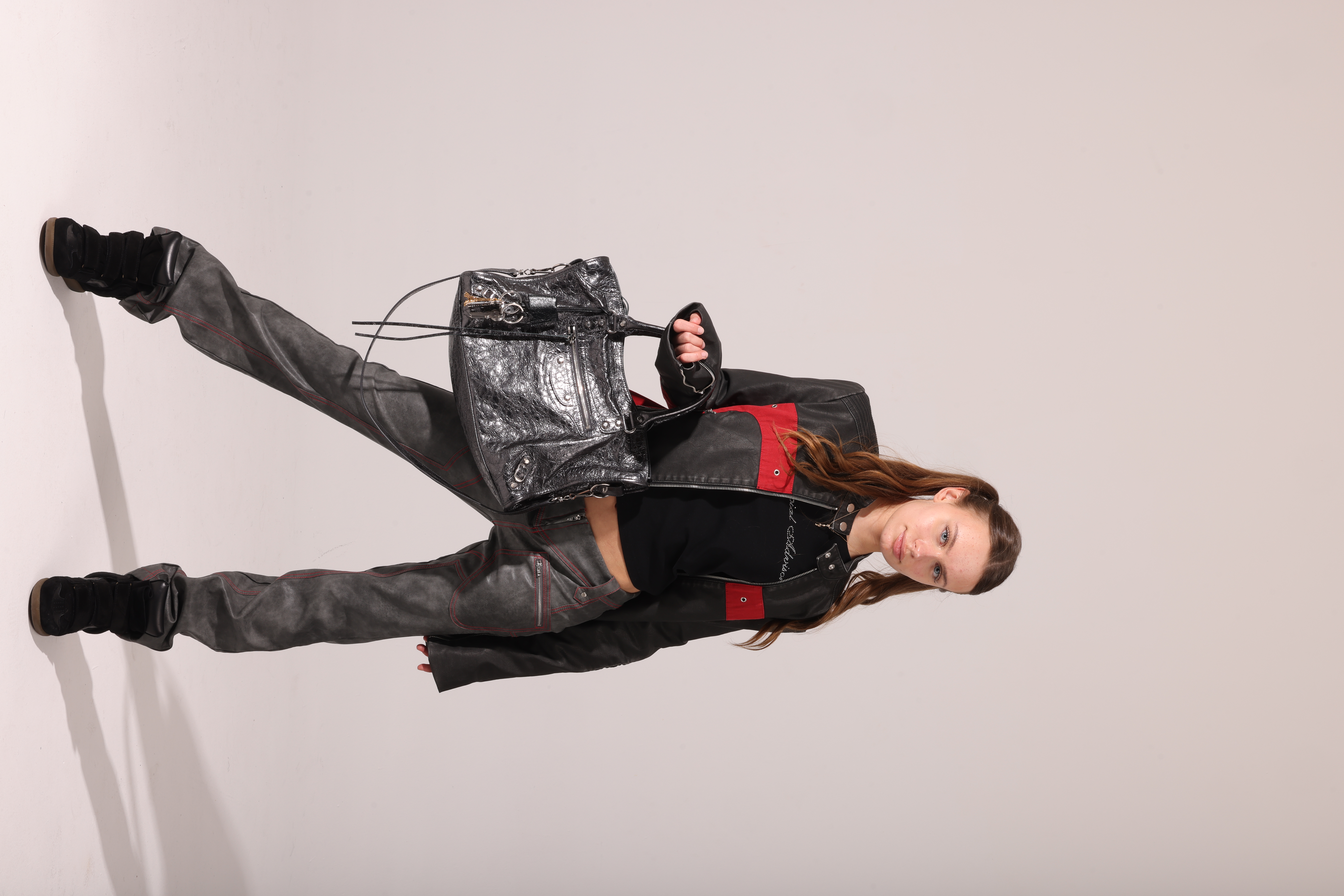It’s hard to believe that much of Ace came from intense emotional confessions such as anger. “Just accept that you have anger,” Cunningham said. “I have a lot of anger.” She never put the structure first, even though she has mastered the form of expression. For Cunningham, writing music equals letting raw emotions spill out the ways they desire and see how they take shape in their authentic form. As a result, Ace consists the some of the artist’s richest and unfiltered works.
Madison Cunningham is known for her unconventional and almost spiritual approach to the pop/folk genre. She never sounded someone who plays safe and stays in a box. But in her own words, Ace is where she takes full creative ownership. “Aesthetically, it’s very different from what I’ve done,” she said about “My Full Name,” the first song released in light of the album. “My Full Name” is 10th on the track list, but she sees it as a statement and declaration.
Instead of the usual guitar backdrop that’s often associated with her songs, piano takes the backstage, declaring a new era. “It established my melodic imprint, less my sonic imprint,” she explained.
While she has gained the title of a “musician’s musician” over the years, she sees it as something irrelevant to what she’s doing. “For me, I think I’m the most artistic when I’m not giving a shit about it,” she said. Expectations are meant to be shattered and definitions are constantly due for a revision. “People want a definition of what you’re doing,” but for her, being an artist is to be free and creativie.
Breaking out of the box becomes the most important thing in her writing journey, and in this, all she can trust is herself. “I have to endorse my curiosity and still trust that it’ll move in the direction I want to,” she said. Titles are what others give to her. She has to find her ground and direction in her intuition.

Press Q&A with Madison Cunningham
Q: What significance does your song “My Full Name” hold your feelings you’ve mentioned over having full creative ownership over this album?
Madison Cunningham: Aesthetically, it’s very different than everything I’ve done. I associated myself with guitar. I felt that it established my melodic imprint, less my sonic imprint, and I thought there’s some ownership in that. In the subject matter of the song, it’s very forward. There’s ownership in that, even though there’s rejection. I’ve enjoyed showing that song first. It’s like a declaration.
Q: “Wake” features Fleet Foxes. What does it mean for you to have them on the track?
Cunningham: I’ve met Robin (Pecknold) four years ago at one of my shows. I just felt there’s a kindred spirit between us. When I was writing “Wake,” I heard it as a duo, and I wanted to include…Robin’s voice was the perfect blend. I never heard his voice harmonize with anyone else, and I really wanted to see what it sound like. I feel really lucky about how it turned out.
Q: How do you see tone itself as part of storytelling and how does it connect to the emotional depth in “Shatter Into Form”?
Cunningham: Tone is everything. That’s why I refuse to text people now. I just want to get on the phone. I think communicate is sometimes more than the words we use. There’s been songs where I figured out what I wanted to say, but the tone of the performance wasn’t right, so I felt like I wasn’t saying it.
Q: Fans often call you a musician’s musician. How do you balance the reputation with the freedom to take risk?
Cunningham: Musician’s musician is definitely a trap. Having to break through these expectations is actually the most important thing. For me, I think I’m the most artistic when I’m not giving a shit about it. Titles that have been laid on me just happened. People want a definition of what you’re doing. They want to know how to listen to you. For me, I have to endorse my curiosity and still trust that it’ll move in the direction I want to. It’s just constantly shattering those expectations for myself. The goal is to not kill it.
Q: What comes first? Is it the structure of how you want a sentiment to be delivered or the writing/the idea comes first?
Cunningham: It has to come from feelings first. Structure is always an okay idea until there’s some kind of word vomit. Just allowing yourself to say everything and there’s no strcuture to it, and suddenly, you’re like, that’s the shape, the form, and structure. Being able to admit that you have anger and let whatever confession, phrases, or whatever to come out.
Q: Is that how “Wake” came to be?
Cunningham: I wrote the song with a guy name Will Taylor. We were both writing and talking. It’s just this natural dialogue. I wasn’t thinking about too much. In tricky matters like heartbreak, I always get really worried it’s going to sound too one-sided. You know what? It is one-sided. It doesn’t mean that’s the whole truth. It’s just my piece of it. My perspective and that’s all I have. It allows me to see the other side to a certain degree, but I don’t know how to fully live someone else’s experience.
CLICK HERE TO LEARN MORE ABOUT MADISON CUNNINGHAM
FOLLOW MADISON CUNNINGHAM












